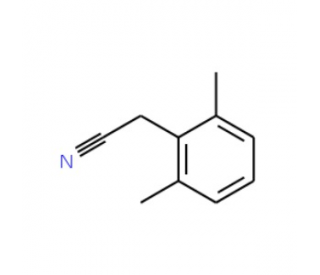详细说明
Species Reactivity
Mouse
Specificity
This antibody reacts with mouse IL-18 on ELISA.
Source
Monoclonal Rat IgG 1 Clone # 93-10C
Purification
Protein A or G purified from hybridoma culture supernatant
Immunogen
Mouse IL-18/IL-1F4
Formulation
In 50 μL volume of PBS containing 1% BSA, 10% glycerol and 0.09% sodium azide, pH 7.2.
Label
Biotin
Applications
Recommended
ConcentrationSample
Mouse IL-18/IL-1F4 Sandwich Immunoassay
Reagent
ELISA Capture (Matched Antibody Pair)
2-8 µg/mL
Mouse IL‑18/IL‑1F4 Antibody (Catalog # )
ELISA Detection (Matched Antibody Pair)
0.5-2.0 µg/mL
Mouse IL‑18/IL‑1F4 Biotinylated Antibody (Catalog # )
ELISA Standard
Recombinant Mouse IL-18/IL-1F4 Protein (Catalog # )
Please Note: Optimal dilutions should be determined by each laboratory for each application. are available in the Technical Information section on our website.
Preparation and Storage
Shipping
The product is shipped with polar packs. Upon receipt, store it immediately at the temperature recommended below.
Stability & Storage
This antibody solution is stable for one year from the date of purchase when stored at 4°C.
Background: IL-18/IL-1F4
Interleukin 18 (IL-18) is a 18 kDa cytokine which identified as a costimulatory factor for production of interferon-gamma (IFN-gamma ) in response to toxic shock and shares functional similarities with IL-12. IL-18 is synthesized as a precursor 24 kDa molecule without a signal peptide and must be cleaved to produce an active molecule. IL-1 converting enzyme (ICE, Caspase-1) cleaves pro-IL-18 at aspartic acid in the P1 position, producing the mature, bioactive peptide that is readily released from the cells. It is reported that IL-18 is produced from Kupffer cells, activated macrophages, keratinocytes, intestinal epithelial cells, osteoblasts, adrenal cortex cells and murine diencephalon. IFN-gamma is produced by activated T or NK cells and plays critical roles in the defense against microbiral pathogens. IFN-gamma activates macrophages, enhances NK activity and B cell maturation, proliferation and Ig secretion, induces MHC class I and II antigens, and inhibits osteoclast activation. IL-18 acts on T helper type-1 (Th1) T cells and in combination with IL-12 strongly induces them to produce IFN-gamma. Pleiotropic effects of IL-18 has also been reported, such as, enhancement production of IFN-gamma and GM-CSF in peripheral blood mononuclear cells, production of Th1 cytokines, IL-2, GM-CSF and IFN-gamma in T cells, enhancement of Fas ligand expression by Th1 cells.
References:
McCurnin, D., et al., Pediatrics 121, 945-956 (2008)
Haveman, L. M., et al., Int. Immunol. 18, 1521-1529 (2006)
Shigehara, K., et al., J. Immunol. 166, 642-649 (2001)
Dao, T., et al. Cell Immunol. 173, 230-235 (1996)
Micallef, M., et al. Eur. J. Immunol. 26, 1647-1651 (1996)
Ushio, S., et al. J. Immunol. 156, 4274-4279 (1996)
Okamura, H., et al. Nature 378, 88-91 (1995)
Long Name:
Interleukin 18
Entrez Gene IDs:
3606 (Human); 16173 (Mouse); 29197 (Rat); 397057 (Porcine); 574151 (Primate)
Alternate Names:
Iboctadekin; IFN-gamma-inducing factor; IGIF; IGIFIL-1 gamma; IL18; IL-18; IL-18MGC12320; IL-1F4; IL1F4iboctadekin; IL-1g; Interferon gamma-inducing factor; interleukin 18 (interferon-gamma-inducing factor); Interleukin-1 gamma; interleukin-18











 粤公网安备44196802000105号
粤公网安备44196802000105号